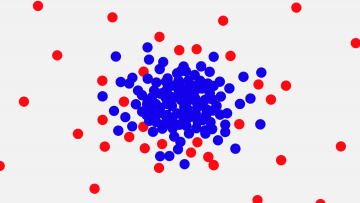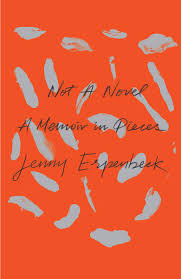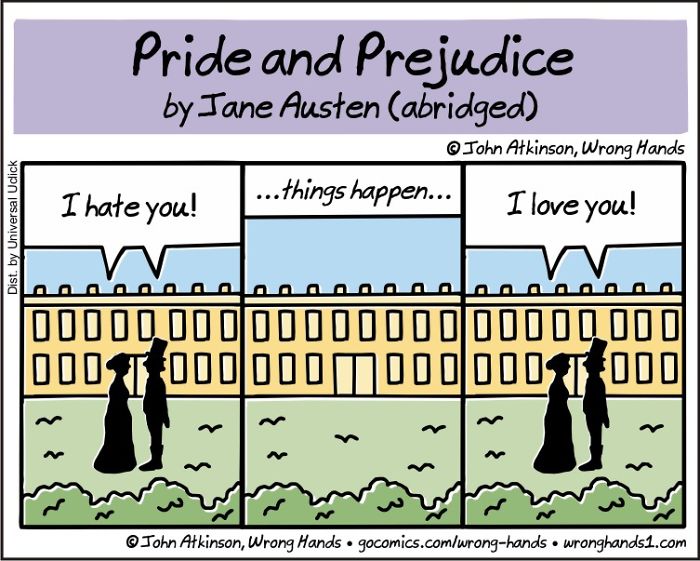Justin E. H. Smith in his Substack Newsletter:
 You can do whatever you want with your morals, forgive people or not. But your duties as a citizen are somewhat different than the duties you might have as, say, a Christian (the kind who strives to follow the gospel), and here forgiveness is not so much what is required as, simply, recognition of a common plight. This civic virtue overlaps, admittedly, with the moral; it is difficult to articulate it in terms that do not come across as moralising, and certainly it would be an impediment to its realisation to articulate it in the bare terms of calculative strategy. In France it is traditionally articulated in terms of fraternité, which seems to strike just the right note between strategy and moralising. We need to hold things together somehow; in a real family unit this might have to pass through an overtly moral gesture of forgiveness, but in a polity what we should perhaps expect is that people aspire at least to a recognition of their fellow citizens through a lens that represents them as brothers and sisters.
You can do whatever you want with your morals, forgive people or not. But your duties as a citizen are somewhat different than the duties you might have as, say, a Christian (the kind who strives to follow the gospel), and here forgiveness is not so much what is required as, simply, recognition of a common plight. This civic virtue overlaps, admittedly, with the moral; it is difficult to articulate it in terms that do not come across as moralising, and certainly it would be an impediment to its realisation to articulate it in the bare terms of calculative strategy. In France it is traditionally articulated in terms of fraternité, which seems to strike just the right note between strategy and moralising. We need to hold things together somehow; in a real family unit this might have to pass through an overtly moral gesture of forgiveness, but in a polity what we should perhaps expect is that people aspire at least to a recognition of their fellow citizens through a lens that represents them as brothers and sisters.
Even after the defeat of Nazi Germany, the Allied forces understood that de-Nazification meant, first of all, punishing the leaders of the movement, and, second of all, getting the masses of the German people oriented towards an ideal of civic belonging more attractive than Nazism.
More here.

 Alexandria Ocasio-Cortez has criticised the Democratic party for incompetence in a no-holds-barred, post-election
Alexandria Ocasio-Cortez has criticised the Democratic party for incompetence in a no-holds-barred, post-election  IN OLIVER HIRSCHBIEGEL’S
IN OLIVER HIRSCHBIEGEL’S

 Adam Shatz in the LRB:
Adam Shatz in the LRB: Audrey Truschke in Aeon:
Audrey Truschke in Aeon: Two themes seem
Two themes seem A powerful gene-editing tool called Crispr-Cas9, which this month
A powerful gene-editing tool called Crispr-Cas9, which this month  The essays explore the subjects – walls and borders, truth and silence, identity and memory and the limitations of language – present in her fiction while her autobiographical accounts give valuable context. Despite having slept through a nation’s collapse, Erpenbeck swiftly realised: “Everything that had been called the present up until then was suddenly called the past.” And so she erected another border inside herself, “made of time, between the first half of my life which was transformed into history by the fall of the wall… and the second half, which began at that same moment”. She clearly enjoyed a happy childhood. In John we learn about the lovesick schoolboy who would phone her and, refusing to reveal his identity, would quote Beatles lyrics. Years later, when Erpenbeck requested her file from the Stasi, she discovered that they had intercepted John’s daily record of who had arrived and left her apartment block. In Open Bookkeeping her mother’s death in 2008 is reduced to a poignant list of everything Erpenbeck has to find a home for, the accounts she has to close, the refunds that come in and those that don’t.
The essays explore the subjects – walls and borders, truth and silence, identity and memory and the limitations of language – present in her fiction while her autobiographical accounts give valuable context. Despite having slept through a nation’s collapse, Erpenbeck swiftly realised: “Everything that had been called the present up until then was suddenly called the past.” And so she erected another border inside herself, “made of time, between the first half of my life which was transformed into history by the fall of the wall… and the second half, which began at that same moment”. She clearly enjoyed a happy childhood. In John we learn about the lovesick schoolboy who would phone her and, refusing to reveal his identity, would quote Beatles lyrics. Years later, when Erpenbeck requested her file from the Stasi, she discovered that they had intercepted John’s daily record of who had arrived and left her apartment block. In Open Bookkeeping her mother’s death in 2008 is reduced to a poignant list of everything Erpenbeck has to find a home for, the accounts she has to close, the refunds that come in and those that don’t. A.N. Wilson has been for many years one of England’s most formidable biographers, as well as an amazingly productive novelist — 23 novels under his belt, to match nearly the same number of nonfiction considerations of subjects ranging from Jesus and St. Paul to Milton, Darwin, Hitler, C. S. Lewis and the queen. (Along the way he spent seven years lecturing on medieval literature at Oxford.) His knowledge is wide, his writing fluent — one can only wonder why his name and reputation haven’t flourished here in America the way they have in his own country, where he is something of a Figure. Alas, I don’t believe that this is going to change with his latest book, “The Mystery of Charles Dickens,” which is appearing just in time for the Dickens anniversary. Here, to put it bluntly, is a highly peculiar biography — peculiar not for what it says about Dickens but for what it says about Wilson himself.
A.N. Wilson has been for many years one of England’s most formidable biographers, as well as an amazingly productive novelist — 23 novels under his belt, to match nearly the same number of nonfiction considerations of subjects ranging from Jesus and St. Paul to Milton, Darwin, Hitler, C. S. Lewis and the queen. (Along the way he spent seven years lecturing on medieval literature at Oxford.) His knowledge is wide, his writing fluent — one can only wonder why his name and reputation haven’t flourished here in America the way they have in his own country, where he is something of a Figure. Alas, I don’t believe that this is going to change with his latest book, “The Mystery of Charles Dickens,” which is appearing just in time for the Dickens anniversary. Here, to put it bluntly, is a highly peculiar biography — peculiar not for what it says about Dickens but for what it says about Wilson himself. Look away, America. For your own good, look away. Everything will still be there when you come back. Even once the vote counting’s done, there’ll be the recounting, and the tag-along lawsuits.
Look away, America. For your own good, look away. Everything will still be there when you come back. Even once the vote counting’s done, there’ll be the recounting, and the tag-along lawsuits.